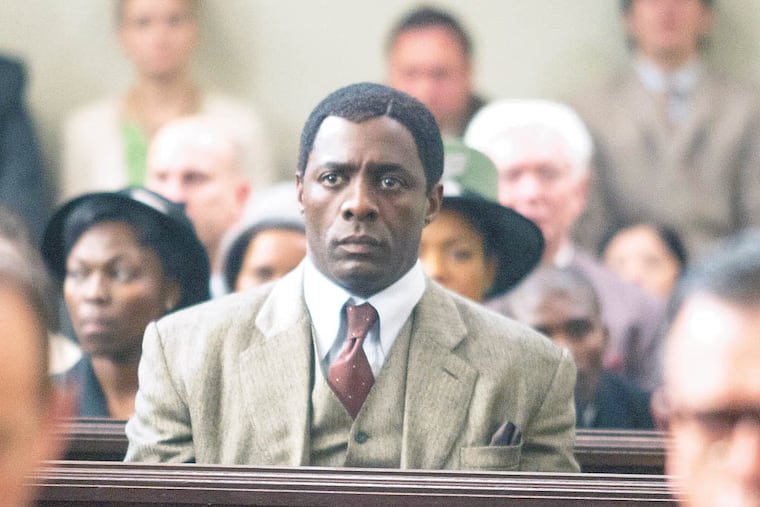Idris Elba Tackles 'Mandela'
Idris Elba plays Nelson Mandela in "Mandela: Long Walk to Freedom," a comprehensive if not always riveting biography

IF YOU KNOW Idris Elba from some of his best work, like BBC TVs "Luther," you might have a hard time seeing him as Nelson Mandela.
Elba's built like an inside linebacker, and his Luther is the two-fisted maverick cop who'd happily chuck an (unadjudicated) adversary off a very high balcony.
As such he seems an uneasy fit for Mandela, whom we've come to know as a sort of amalgam of Lincoln, Buddha and Gandhi - lanky, frail, smiling, benificent, wise.
But, of course, that's not the complete picture. Retrospectives inspired by Mandela's recent death have allowed us to revisit the young Mandela. The activist lawyer, the well-muscled boxer, before decades of prison stripped the flesh from his frame. Also the militant and saboteur, whose armed campaign against South Africa's apartheid government led to his prison sentence.
Elba brings that Mandela back to life in "Mandela: Long Walk to Freedom," a comprehensive if not consistently engaging look at the great leader's adult life.
It starts at his jump from rural, tribal South Africa to Johannesburg in the late 1940s, where he enjoyed cosmopolitan, urban life and made a name for himself as a talented lawyer.
He was a handsome and dynamic figure, popular with women (as we see, his first marriage didn't last long) and with leaders of a growing anti-government movement that coveted his natural leadership skills and power to sway a crowd.
We watch his rise to prominence in the movement, his decision to endorse and participate in violent insurrection, his marriage to Winnie (Naomie Harris), and his arrest, trial and incarceration.
"Mandela" skips over these events like a smooth stone skipping across water, touching each important moment but never really breaking the surface.
And yet, although the pace of the movie slows as it moves to his prison term, "Mandela" finds its stride. It's here we see how Mandela's growing international celebrity increases his iconic and political power, creating problems within the movement and within his marriage.
Mandela comes to see the bloody folly of armed revolution, while Winnie sees anything less as selling out. Fair or not, the movie shows Nelson as a man who lives with violence, Winnie as a leader who lives for it.
Meanwhile, Nelson's fellow militants, the brain trust of the anti-apartheid movement, resent the way his fame puts him in a position to negotiate unilaterally (and secretly) with representatives of the white minority government, who know that their days are numbered.
These scenes of private negotiation, by the way, are very good - Mandela's adversaries and antagonists waking up to the reality of his "soft" power, Mandela trying to carve out political room for the disempowered white elite.
All of them sit atop the short-fused powder keg of South Africa in the 1980s and '90s. These scenes really bring home the tactical, moral and philosophical genius of Mandela's tricky tightrope walk on his way to the presidency and to a reasonably peaceful South Africa.